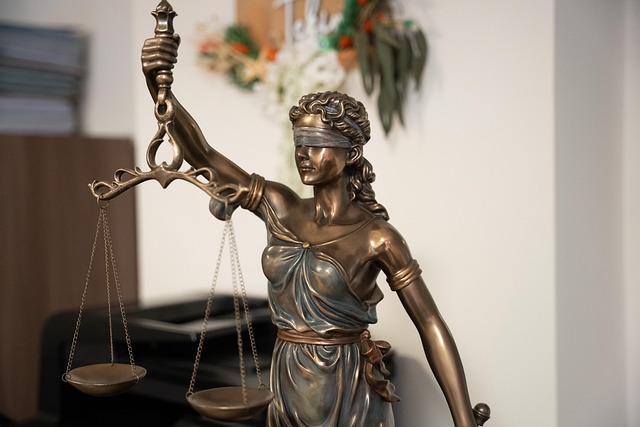Efficient dictation practices in law offices rely on high-quality digital dictaphones and speech recognition software to boost productivity and accuracy. Law office equipment, such as portable dictaphones and advanced software, allows attorneys to swiftly transcribe conversations and meetings without compromising focus. When selecting dictation tools, prioritize understanding practice needs, equipment quality, compatibility, portability, and budget constraints to optimize workflow integration and enhance legal professionals' overall productivity.
In today’s fast-paced legal landscape, efficient dictation equipment is a game-changer. Understanding your law office’s specific needs is crucial before selecting the right technology. This article guides professionals through the process of choosing the ideal dictation equipment, from understanding unique legal requirements to setting up an efficient system. Explore popular choices and discover key factors to ensure your investment in law office equipment enhances productivity and accuracy.
- Understanding Dictation Needs in Law Offices
- Types of Legal Dictation Equipment
- Factors to Consider When Choosing Equipment
- Popular Choices for Legal Professionals
- Setting Up an Efficient Dictation System
Understanding Dictation Needs in Law Offices
In the fast-paced and detail-oriented environment of law offices, understanding dictation needs is paramount for enhancing productivity and accuracy. Legal professionals often require precise and efficient methods to capture information, whether it’s dictating legal documents, taking notes during meetings, or transcribing interviews. The right dictation equipment can significantly streamline these processes, ensuring that every word is accurately recorded and easily accessible.
Effective dictation in law offices involves considering factors such as sound quality, ease of use, and compatibility with existing case management systems. High-quality digital dictaphones and speech recognition software are increasingly becoming indispensable tools, allowing attorneys to focus on the task at hand while their words are meticulously converted into text. By selecting suitable law office equipment tailored to these specific needs, legal professionals can optimize their workflows and deliver services more efficiently.
Types of Legal Dictation Equipment
Legal professionals require reliable and efficient dictation equipment to transcribe conversations, meetings, and legal proceedings accurately. The market offers a range of options tailored to different needs, from traditional handheld devices to modern digital solutions. One common type is the portable dictaphone, which allows lawyers to record and store audio files conveniently. These devices often feature high-quality microphones for clear recordings and can be easily transported for on-the-go dictation.
For law offices managing large volumes of dictation, advanced digital systems are ideal. These include software applications that integrate with computers, offering features like speech recognition, real-time transcription, and seamless file management. Such systems enhance productivity by enabling lawyers to review and edit recordings instantly, ensuring precise documentation without the need for extensive manual typing.
Factors to Consider When Choosing Equipment
When selecting dictation equipment for a law office, several key factors come into play. Firstly, consider the specific needs and workflows within your practice. Different legal professionals have varying requirements—from lawyers in court settings needing robust and portable devices to paralegals in offices favoring features that enhance accuracy and efficiency. Secondly, assess the quality and reliability of the equipment. Legal work demands precision, so invest in machinery that offers low latency, high accuracy, and consistent performance to minimize errors and save time.
Additionally, think about compatibility with existing systems. Ensure the dictation device seamlessly integrates with your case management software or other legal tools to streamline workflows and prevent data silos. Portability is another critical aspect, especially for attorneys who frequently travel or work in diverse locations. Wireless capabilities, long battery life, and lightweight designs are features that facilitate mobility without compromising functionality. Lastly, budget considerations are essential; weigh the cost of equipment against its long-term benefits and the potential return on investment through increased productivity and reduced errors.
Popular Choices for Legal Professionals
Legal professionals have a range of options when it comes to selecting dictation equipment, catering to their specific needs and preferences. Among the most popular choices are digital voice recorders, which offer convenience and advanced features like noise cancellation and transcription software compatibility. These devices are compact, allowing for easy portability between courtrooms and law office equipment.
Another favored option is speech-to-text software, which enables lawyers to dictate memos, legal briefs, and even entire documents without the need for a physical recorder. This technology has revolutionized how legal professionals manage their workload, ensuring accuracy and efficiency in document creation. Many of these software solutions integrate seamlessly with existing law office equipment and case management systems.
Setting Up an Efficient Dictation System
Setting up an efficient dictation system is a game-changer for legal professionals looking to streamline their workflow and enhance productivity. The first step involves selecting the right hardware, such as high-quality dictaphones or digital voice recorders, designed to capture clear audio in various environments, from bustling courtrooms to quiet conference rooms. Investing in reliable law office equipment ensures accurate and consistent recordings, saving time on transcription later.
Once the hardware is in place, it’s crucial to integrate it with user-friendly software that transcribes and manages recordings. This could include dictation applications or voice recognition software tailored for legal use, offering features like automated indexing, case name search, and seamless integration with popular case management systems. By implementing such measures, legal professionals can efficiently capture, organize, and access their dictated content, ultimately improving the accuracy of documentation and freeing up time for more strategic tasks.
Selecting the right dictation equipment is a key step in optimizing productivity and efficiency within law offices. By understanding specific dictation needs, exploring available technologies, and considering practical factors, legal professionals can choose equipment that streamlines workflows and enhances accuracy. Popular choices, backed by their reliability and advanced features, offer seamless integration into modern law office settings. With the right setup, legal teams can elevate their document creation processes, ultimately improving overall productivity and client service.
